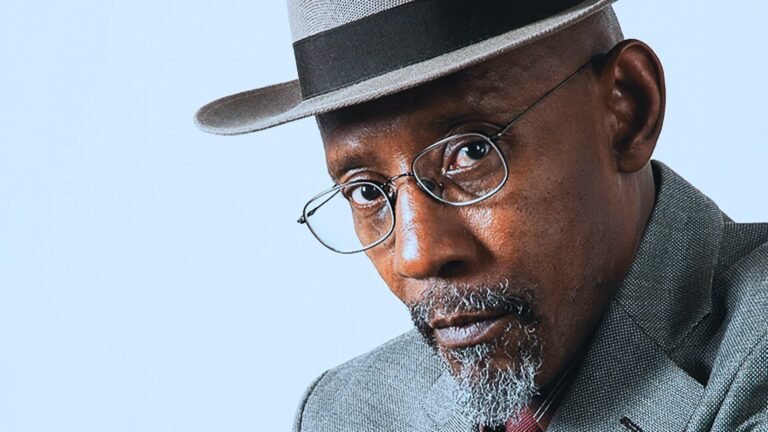A landmark documentary capturing the rise of dub poetry and the uncompromising voice of certainly one of its pioneers is ready to return to the display. Dread Beat an Blood, the 1979 movie by Babylon director Franco Rosso, shall be proven in a newly restored model on the Brooklyn Academy of Music (BAM) this September, marking the fiftieth anniversary of Linton Kwesi Johnson’s seminal 1975 poem of the identical title.
The screening shall be adopted by Johnson’s first main US stage look in practically 20 years, that includes a spoken phrase efficiency and an on-stage dialog with The Atlantic senior editor Vann R. Newkirk II. For audiences, it gives a uncommon likelihood to see the “regal dub poet” (as The New York Instances described him) return to dwell efficiency alongside the revival of one of many defining movies about Black British tradition.
Filmed within the late Seventies, Dread Beat an Blood immerses viewers within the charged ambiance of Brixton at a time of deep political friction and racial discrimination. Rosso’s documentary follows Johnson into the recording studio with reggae musician and producer Dennis Bovell, onto levels the place his patois-driven verse meets heavy dub rhythms, and into the center of political protests, together with the marketing campaign to free wrongly imprisoned Black Briton George Lindo.
The movie additionally consists of scenes from the 1976 Notting Hill Carnival, the place confrontations between police and younger folks of Caribbean heritage underscored the tensions Johnson was writing about. Its direct and confrontational fashion attracted controversy from the outset, with the BBC shelving a deliberate broadcast till after Margaret Thatcher’s election.
Born in Chapelton, Jamaica, in 1952, Johnson moved to England in 1963. As a young person, he joined the British Black Panther Motion and have become concerned within the Race Right now Collective and the Black Dad and mom Motion. Whereas finding out sociology, he started writing poetry that mixed political commentary with the cadence of Jamaican speech, drawing on the sound system tradition he grew up round.
By the late Seventies, this fusion of verse and rhythm had crystallised into a brand new type—dub poetry—which Johnson pioneered. His early recordings beneath the title Poet and the Roots, together with the Dread Beat an Blood album, have been as a lot political testimony as musical innovation. In his personal phrases, “I didn’t need to emulate anybody else. I wished it to sound like me.”

Although hardly ever screened after its authentic launch, Rosso’s documentary has been recognised as a vital report of British Caribbean tradition. The brand new restoration, created by the British Movie Institute from the unique 16mm reels, brings the movie to North American audiences for the primary time.
Filmmaker Steve McQueen has known as Johnson “the one to look to” for integrity and longevity, noting that “his phrases are nonetheless related and that reggae bass remains to be vibrating.” That relevance is borne out within the documentary’s portraits of communities dealing with injustice, and in Johnson’s unwavering dedication to cultural and political engagement over 5 a long time.
Johnson’s affect stretches far past dub poetry. His work has formed reggae, spoken phrase, and even the rhythms and social consciousness of early hip-hop. He grew to become the second residing poet, and the primary Black poet, to be printed by Penguin Fashionable Classics, and his 2023 ebook Time Come: Chosen Prose reaffirmed his standing as a pointy observer of politics and tradition.
For Johnson, poetry has all the time been intertwined with activism. Talking in 2022, he famous that cultural work “is just not an alternative to concrete political motion… however all our struggles have a cultural dimension.”

Dread Beat an Blood will premiere in its restored type on Saturday 20 September at BAM’s Harvey Theater, in affiliation with The Atlantic Pageant. The night will embrace a 45-minute screening, a 25-minute spoken phrase efficiency, and a 25-minute dialog with Johnson.
For many who comply with the intersections of music, politics, and literature, it is a chance to interact with a determine whose voice has formed half a century of cultural historical past—and whose phrases nonetheless carry the load of pressing fact.

